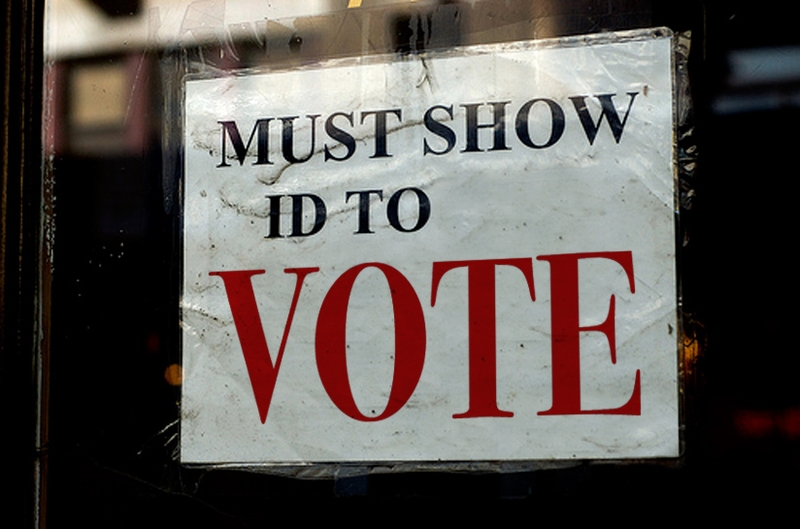
by: Kevin Lorello, 2L Contributor
Less than a month after the state Supreme Court invalidated significant portions of the Act 13 drilling statute, the Commonwealth Court found another important policy initiative to be unconstitutional in Applewhite v. Commonwealth. In an opinion by Judge Bernard McGinley, the court struck down Act 18, the state law that requires all Pennsylvania voters to show identification at the polls.
Passed in March of 2012 by the Republican-controlled Legislature, Act 18 is one of the strictest voting laws in the nation and has been the source of controversy since its inception. Critics of the law view it as detrimental to the voting process and a mechanism designed to suppress voting among the poor, minorities, students, and the elderly. Those in favor of the law, on the other hand, argue that the law’s stringent identification requirements are necessary in order to prevent voter fraud.
Judge McGinley sided with those in opposition to the law, ruling that Act 18 violated the strong voting protections embedded in the Pennsylvania Constitution. In reaching this decision, Judge McGinley analyzed the law under a strict scrutiny standard, since the right to vote is an acknowledged constitutional and fundamental right that was being interfered with by the Legislature’s passage of the voter identification statute. The state failed to satisfy its burden of proving that the law was narrowly designed to achieve a compelling governmental interest. In his opinion, Judge McGinley stated that the state “failed to establish a nexus between photo identification – showing voters are who they say they are, and the integrity of elections – when prior elections accepted a number of types of proof to verify identity.” Judge McGinley also noted the state’s failure to correct the misinformation contained in its $5 million campaign to explain the Act, that free IDs and other forms of approved identifications were often difficult to obtain, and that the state failed to point to a single incident of voter fraud, which the law was allegedly implemented to counteract.
As expected, Judge McGinley’s decision has stirred up its fair share of criticism, with many of the critics arguing that it conflicts with the 2008 decision rendered by the United States Supreme Court in Crawford County v. Marion County Election Board, in which the Court upheld an Indiana voter identification law similar to the one at issue in Pennsylvania. However, unlike the Indiana law, which had not been implemented when the Supreme Court ruled it to be constitutional, Act 18 had been in effect for almost two years. This enabled Judge McGinley to examine the actual impact of the law, which he found to be a burdensome measure that had achieved no success in deterring voter fraud. Furthermore, as Professor Bruce Ledewitz aptly puts it, “Judge McGinley’s opinion shows a cavalier treatment by the legislature of the right to vote.”
It is expected that this decision will be appealed, although the state has not announced its intentions as of yet. Furthermore, it remains unknown whether Pennsylvania voters will be required to show photo identification in the upcoming May primary.
Sources:
Saranac Hale Spencer, Pennsylvania’s Voter ID Law Struck Down, The Legal Intelligencer, Jan. 21, 2014. http://www.thelegalintelligencer.com/id=1389958060236?slreturn=20140022115009#.
David Stout, Supreme Court Upholds Voter Identification Law in Indiana, The New York Times, April 29, 2008. http://www.nytimes.com/2008/04/29/washington/28cnd-scotus.html.
Karen Langley, Pennsylvania Judge Strikes Down State’s Voter ID Law, Pittsburgh Post-Gazette, Jan 17, 2014. http://www.post-gazette.com/news/state/2014/01/17/AP-Pennsylvania-judge-strikes-down-state-s-voter-ID-law/stories/201401170131.